Life
Sign up for our newsletter
We summarize the week's scientific breakthroughs every Thursday.
-
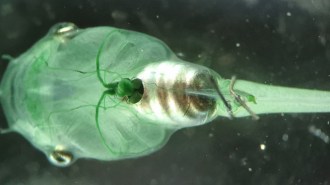 Health & Medicine
Health & MedicineAlgae inside blood vessels could act as oxygen factories
Two types of light-responsive algae make oxygen inside tadpoles’ blood vessels.
-
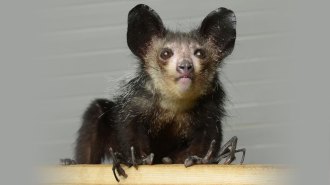 Life
LifeAye-ayes just got weirder with the discovery of a tiny, sixth ‘finger’
Aye-ayes have a sixth “finger,” or pseudothumb, that may compensate for other, overspecialized fingers by helping the lemurs grip things.
By Sofie Bates -
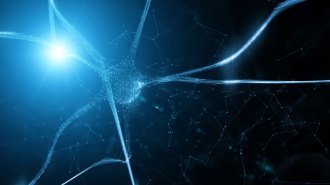 Neuroscience
NeuroscienceLight from outside the brain can turn on nerve cells in monkey brains
An extra-sensitive light-responsive molecule allowed nerve cells to be switched on or off with dim light.
-
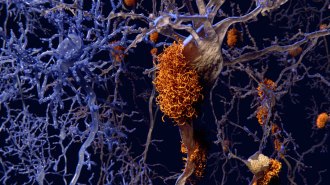 Neuroscience
NeuroscienceAlzheimer’s may scramble metabolism’s connection to sleep
Mice designed to have brain changes that mimic Alzheimer’s disease have altered reactions to blood sugar changes.
-
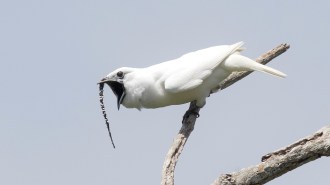 Animals
AnimalsWhite bellbirds have the loudest known mating call of any bird
White bellbirds have the loudest mating call, according to scientists who compared the songs of bellbirds and screaming pihas in the Brazilian Amazon.
By Sofie Bates -
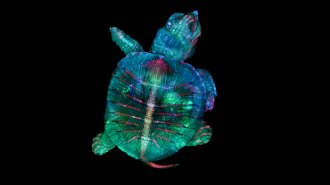 Life
LifeA peek inside a turtle embryo wins the Nikon Small World photography contest
The annual competition highlights the wonders to be found when scientists and photographers zoom in on the world around us.
-
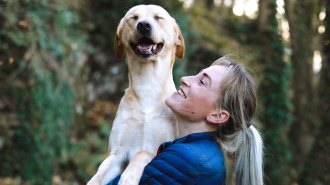 Animals
AnimalsNew books explore why dogs and humans have such a special bond
‘Dog Is Love’ and ‘Our Dogs, Ourselves’ delve into the complicated, sometimes contradictory relationship that we have with our canine companions.
-
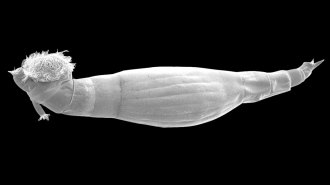 Health & Medicine
Health & MedicineThese tiny aquatic animals secrete a compound that may help fight snail fever
A newly identified molecule from rotifers paralyzes the larvae of worms that cause schistosomiasis, which affects over 200 million people worldwide.
By Sofie Bates -
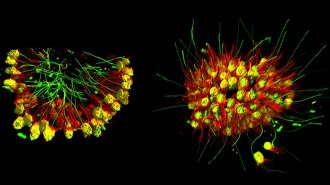 Life
LifeAcrobatic choanoflagellates could help explain how multicellularity evolved
A newfound single-celled microbe species forms groups of multiple individual organisms that change shape in response to light.
-
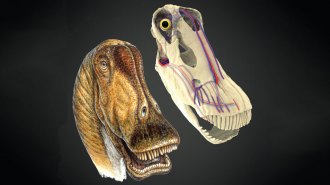 Paleontology
PaleontologyBig dinosaurs kept cool thanks to blood vessel clusters in their heads
Giant dinosaurs evolved several strategies for cooling their blood and avoiding heatstroke.
-
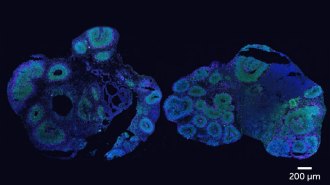 Neuroscience
NeuroscienceOrganoids offer clues to how brains are made in humans and chimpanzees
Three-dimensional clumps of brain cells offer clues about how brains get made in humans and chimpanzees.
-
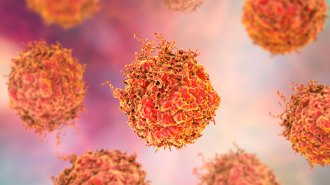 Health & Medicine
Health & MedicineA precision drug for prostate cancer may slow the disease’s spread
The drug olaparib could be used to treat men with certain genetic mutations and severe types of prostate cancer, a clinical trial finds.
By Sofie Bates